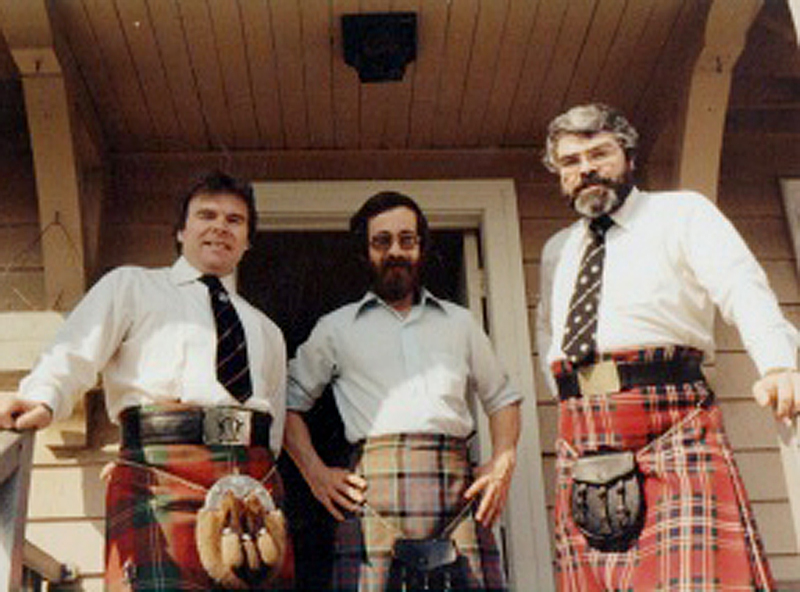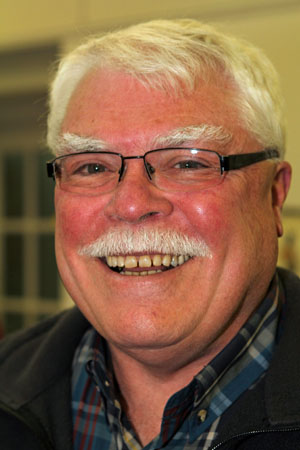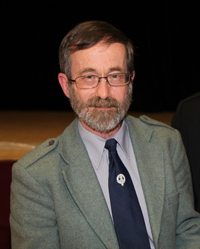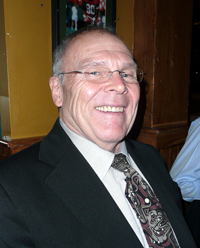Eller, Senyk & Troy: the Canadian Big Three – Part 1
By any measure, City of Victoria, Clan MacFarlane and Triumph Street were Canadian Grade 1 pipe bands that in the 1970s altered the course of history.
Before there were the 78th Fraser Highlanders, Simon Fraser University and a host of other successful Canadian and non-UK bands, these Grade 1 groups were the first to be considered consistently as serious contenders as being the best in the world.

And they were led by three of the greatest pipe-majors in history.

Ken Eller was pipe-major of St. Catharines, Ontario-based Clan MacFarlane for more than 20 years. Beginning in the 1960s and continuing until the mid-1980s, Eller guided “The Clan” to a raft of North American Championship titles, creating a trademark and legendary big sound to rival anything on earth. Surrounded by a stalwart and committed group of players, including pipers like Bob MacCrimmon, Scott MacAulay, Peter MacKenzie, Ron Rollo, Dave Goodall, and drummers such as John Kirkwood, Bob Downs, Douglas Kirkwood, and Andy Miller, the club-like Clan MacFarlane stayed together and, most importantly, played together – in every sense of the word. Ken Eller – affectionately nicknamed “The Captain” by his players – was the glue that held the Clan together through his charisma, charm and outright skill. A lifelong student of pipe bands and piping, he has continued his big presence in the pipe band world as a teacher, judge and popular host and commentator for myriad concerts, recitals and broadcasts. His “Captain’s Corner” website has been a popular resource since the earliest days of the internet. Now 75, but with the his mental agility and charisma as sharp as ever, he enters his final year of eligibility as an RSPBA adjudicator (due to the organization’s age limit rule), and is as in-demand as ever for judging and teaching around the world.

The pipe-major of the original rendition of Triumph Street of Vancouver, Hal Senyk helped to form the historically successful band in the early 1970s. Named for an actual street in the British Columbia city, Triumph Street began as a bare-bones ensemble, competing in the highest without matching kilts or even bagcovers, many of the band’s members sporting long beards and mustaches, reflecting the look of the disco ’70s. Triumph Street also shook up the pipe band world by being the first top band to have not just one or two, but several women in its ranks, proving that playing excellence at the top level has nothing to do with gender. As a student of the great Muirhead & Sons Pipe-Major Bob Hardie, and a member of his band for a time, Hal Senyk learned from the master and applied it to Triumph Street’s emphasis on musicality and ensemble. The band, still only a few years old, travelled to Scotland in 1976 and placed fourth at the European Championships and, returning to the UK in 1979, placed fifth and won the drumming at the World Championships in Nottingham, England, helping to change the course of history forever, proving that it was possible to actually get the nod not just for a prize, but for a first prize, from RSPBA judges. Hal Senyk has continued to be a major contributor to piping, teaching numerous bands and individuals, competing here and there with other groups, all while holding down a successful career as a lawyer, which he still enjoys today, from his home in New Westminster, British Columbia.

As with Ken Eller and Hal Senyk, Jamie Troy is a true pipe band legend and a towering figure in pipe band history. As the pipe-major of City of Victoria of Victoria, British Columbia, Troy spearheaded the most musically innovative bands of the 1970s. Surrounded by superbly talented and creative pipers like Colin Magee, Bruce Gandy, Steve Geddes, Peter Aumonier, and a crazily-talented Alex Duthart disciple in Lead-Drummer John Fisher, “Victoria” was one of the first bands to harness new music and arrangements from its players. While Troy was clearly the leader, he had the confidence and intelligence to go deeper, producing original music from within. Indeed, two of his pipers, Terry and Jack Lee would go on to huge things, chief among them six World Championship wins, with Simon Fraser University. City of Victoria has the distinction of being known as “the best band not to win the World’s,” when by all accounts – including history-making pipe-majors like Iain McLeod of the Edinburgh City Police – the band deserved to win the title outright in 1979 at Nottingham where they were finished sixth. Retiring from the pipe-majorship in the 1980s, Troy has been a sought-after teacher and judge and, after he acquired in the early 1990s the noteworthy McAllister Reedmakers (created by fellow pipe band legends John K. and Tom McAllister, he and his son, James P. Troy – an extraordinary piping and snare drumming talent) has been creating some of the world’s best pipe chanter reeds at Troy Reedmakers.
We’re not getting any younger, as they say, so we thought it was time to get this trio of world-beaters together for a chat.
In three parts, the group discusses pipe band life in the 1970s and ’80s, their philosophical approaches and techniques, their inspirations and camaraderie and respect that they have always had for each other personally, as well as the deep admiration they held for one another’s bands.
We hope you enjoy Eller, Senyk & Troy: the Canadian Big Three, and we thank these great leaders for sharing their time and insights with the piping and drumming world.
Stay tuned for Part 2 of Eller, Senyk & Troy: the Canadian Big Three in the next few days.
Related

Triumph Street at the 1979 World’s
June 24, 2019
 World’s 1979 summary sheets
World’s 1979 summary sheets
July 25, 2019
 Triumphant and Victorious – 1979 a historic World’s, 40 years later
Triumphant and Victorious – 1979 a historic World’s, 40 years later
July 24, 2019

So delighted to see this! I grew up in the west. Jamie and my dad grew up together and went to the same piping teacher…My dad was a dancer along with my aunt and Jamie piped for them…my dad started me on pipes but only taught me the scale and G grace notes and then said I guess I should find you a teacher…he thought he’d be to hard on me so Jamie came into my life…He was hard on me almost to the point of quitting. I was intimidated by him but I had immense respect. While I’m not as good as Bruce Gandy whose family was also close to mine. I owe my whole piping career to Jamie, sure I was influenced by other great players, such as Hal, Archie and John, Jamie is my roots.
My piping path lead me into the Army fallowing in my dads foot steps so to speak eventually becoming PM of the Canadian Scottish Regiment. I also was an invited member of the City of Victoria when we tried a come back in the mid 90’s I grew up around this. It has influenced my whole life.
I feel so privileged and grateful to have had Jamie and later others in my life that kept me going shared with me so much…I still to this day have so much to learn.